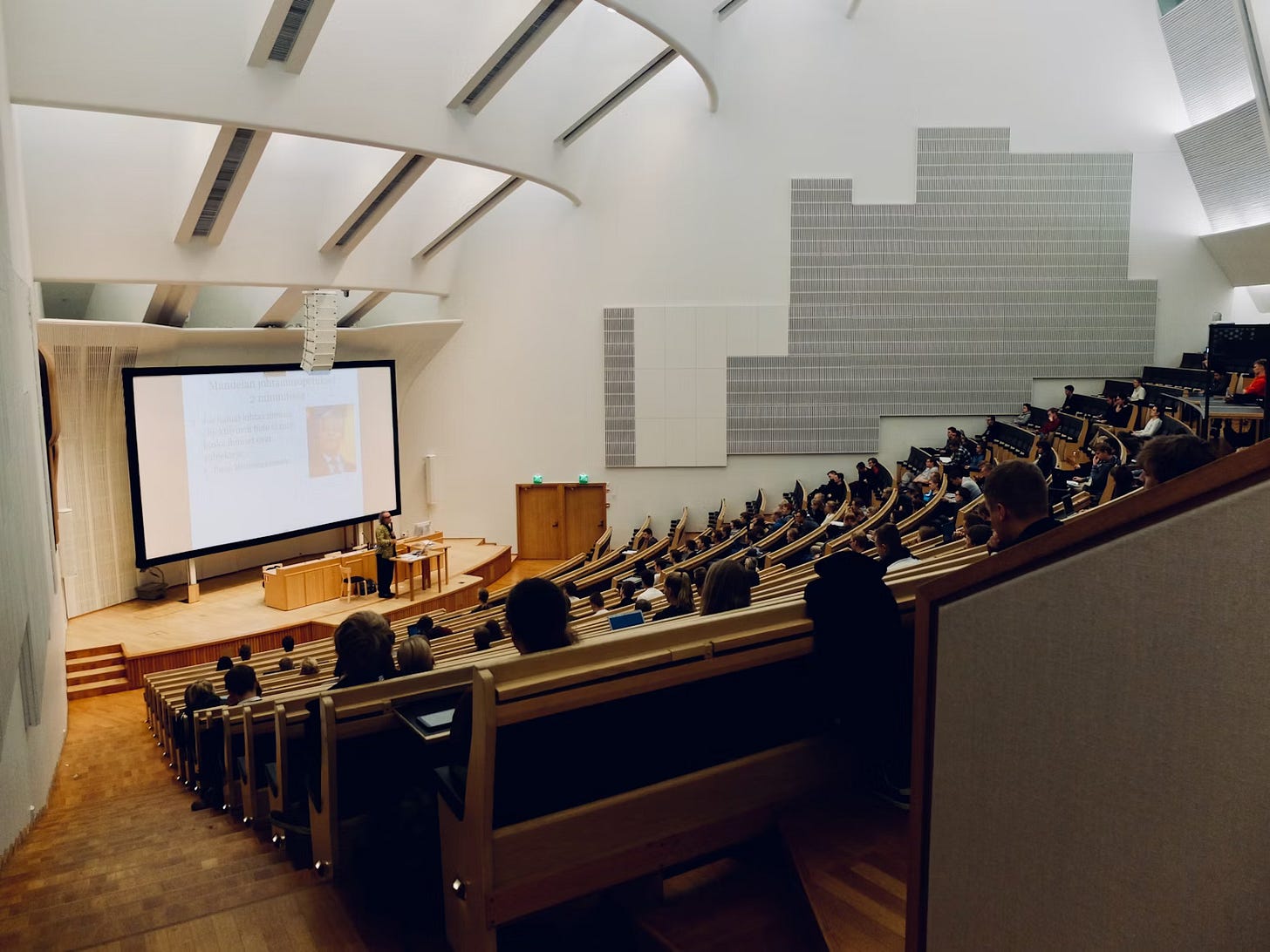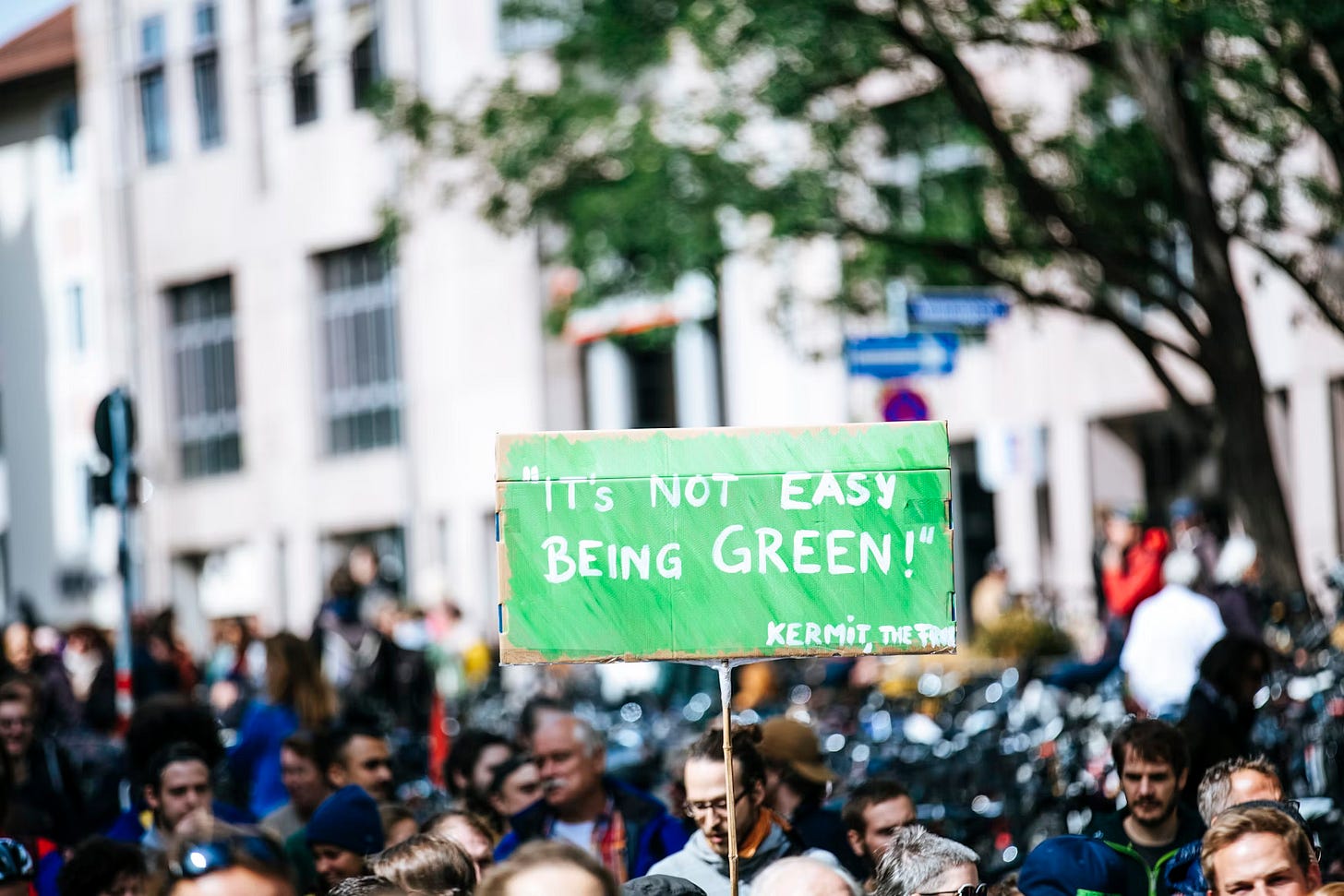E-Pluribus |October 16, 2025
Isolated academics disregard truth. Editor fired for publishing controversial climate study. Criticize your mayor, go to jail?
A round-up of the latest and best insight on the rise of illiberalism in the public discourse:
Michael W Clune: Professors Can Be Ignorant. That’s Why We Need Viewpoint Diversity.
Exposing yourself to contrary perspectives is the best way to refine your understanding of the world. This is a critical truth too few academics appreciate, argues Michael Clune at the Chronicle of Higher Education. Because these learned educators cut themselves off from their political opponents, they increasingly misunderstand and demonize them, enforcing an intellectual conformity on college campuses that amplifies outright absurdities:
It’s hard to succeed as an educator when you don’t know what you’re talking about. And yet many professors of the humanities and social sciences — teaching and writing on topics such as capitalism, police reform, and sexuality — fail a simple, classic test. To understand your own position, you must be aware of, and be able to respond to, objections to that position. We need greater diversity of political and social views in academe not because diversity is a higher value than truth, but because academics’ intellectual isolation has compromised their capacity to pursue truth.
In an academic environment in which objections to the reigning political, social, and cultural assumptions are castigated as beyond the pale of academic discussion, professors find themselves dangerously isolated, ignorant of how their students and fellow citizens view their behavior. Discussing faculty posts on social media about the assassination of Charlie Kirk, a student at the University of Texas at Austin writes: “I’ve learned that there are people on my college campus who would cheer if someone like me, a young person who openly expresses my traditional Christian beliefs and right-wing political views, were murdered.”
This is not the lesson most faculty members intend to teach, but many professors simply don’t know how they appear to nonacademics and don’t know how to respond appropriately to ideas that differ from their own. Professors in many fields tend to think that disagreement with their disciplines’ consensus (on, say, police reform, capitalism, or gender) is equivalent to Holocaust denial, or, as Lisa Siraganian puts it in a recent essay in Academe attacking viewpoint diversity, denying the double-helix model of DNA.
Gabriel Zylstra: ‘Shut out’: Journal fires editor after publishing research refuting ‘warming climate’
The editor of a science journal was recently fired. His grave offense? Publishing a peer-reviewed study challenging the “consensus” view of climate change, despite the fact that there were no errors in the paper itself. The College Fix reports:
The American Journal of Economics and Sociology recently removed special editor Marty Rowland from his position for publishing a paper refuting climate change argument about carbon dioxide, according to the paper’s authors.
“The standard response of the mainstream climate science community these days to papers that somewhat challenge the CO2-is-dangerous-narrative is to immediately ask for retraction,” Marcel Crok, a co-author of the paper and director of the climate science group Clintel, told The College Fix.
“It’s a strategy because it gives the signal that the paper is really bad and most people don’t have the time and knowledge to assess the situation,” Crok said in an email Tuesday.
The paper in question, “Carbon dioxide and a warming climate are not problems,” was published in the journal in May 2024. Crok co-authored it with Andy May, a retired petrophysicist and developmental geologist who worked for Exxon and other oil and energy companies.
Rowland, a lecturer at the Henry George School of Science and environmental engineer, was the editor at the journal who approved it.
According to May’s blog, the journal fired Rowland in August, and the reason it gave was “his publication of our paper.”
An archived version of the journal editorial board webpage shows Rowland was the special editions editor at least since 2023. The current page no longer lists him as an editor.
Jacob Sullum: Texas City Council Approves $500,000 Payment to Former Member Who Said Her Advocacy Led to a Bogus Arrest
Imagine being arrested on bogus charges and threatened with a year in jail for criticizing your mayor. Sylvia Gonzalez, a former city council member in Castle Hills, Texas, says that was precisely the conspiracy hatched against her in 2020. After her meandering court battle made its way to the Supreme Court, Gonzalez settled a civil suit with the city—which agreed to pay her $500,000 and retrain its officials on the importance of the First Amendment:
Sylvia Gonzalez, a former Texas city council member who said her political opponents punished her activism by orchestrating her arrest on a bogus criminal charge, has agreed to settle the resulting federal civil rights lawsuit. On Tuesday night, the Castle Hills City Council approved the agreement, which includes a $500,000 payment and remedial First Amendment training for city officials.
The settlement was announced about 16 months after the U.S. Supreme Court’s ruling in Gonzalez v. Trevino, which revived Gonzalez’s lawsuit and made it easier for victims of retaliatory arrests to prove their First Amendment claims. The agreement “closes one chapter for Castle Hills and opens a new chapter for free speech,” said Anya Bidwell, the Institute for Justice attorney who argued Gonzalez’s case at the Supreme Court. “The First Amendment doesn’t come with handcuffs. This outcome sends a message to officials everywhere: if you retaliate against critics, you can be held to account.”
Gonzalez, who was elected to the Castle Hills City Council in 2019, antagonized Mayor Edward Trevino by spearheading a petition calling for the replacement of City Manager Ryan Rapelye. During a May 2019 city council meeting that addressed complaints about Rapelye’s performance, Gonzalez picked up the petition, which had been presented to the council, and placed it in her personal folder. Although she says she did that accidentally, Trevino, Police Chief John Siemens, and Alexander Wright, a “special detective” whom Siemens assigned to investigate Gonzalez, accused her of deliberately removing the document to avoid scrutiny of alleged improprieties in collecting signatures for the petition.
According to Trevino et al., that made Gonzalez guilty of tampering with a governmental record, a rarely charged misdemeanor punishable by up to a year in jail and a $4,000 fine. Wright’s arrest affidavit, which he filed two months after Gonzalez’s alleged crime, cited her agitation against Rapelye as evidence of her offense.
“From her very first meeting in May of 2019,” Wright complained, Gonzalez “has been openly antagonistic to the city manager, Ryan Rapelye, wanting desperately to get him fired.” That plan, Wright explained, “involved collecting signatures on several petitions.” He complained that Gonzalez had visited a resident’s house to “get her signature on one of the petitions under false pretenses” by “misleading her” and “telling her several fabrications regarding Ryan Rapelye.”
As a result of Wright’s allegations, Gonzalez was briefly jailed and suffered the attendant damage to her reputation. Bexar County District Attorney Joe Gonzales, according to Gonzalez’s Supreme Court petition, “dropped the charges as soon as he learned about them.”
Trevino et al. nevertheless achieved what Gonzalez says was their goal all along. “Gonzalez was so hurt by the experience and so embarrassed by the media coverage of her arrest,” the petition says, that “she gave up her council seat and swore off organizing petitions or criticizing her government.”
Gonzalez sued the city, Trevino, Siemens, and Wright in September 2020, arguing that the defendants had conspired to violate her First Amendment rights. A federal judge allowed the case to proceed, but the U.S. Court of Appeals for the 5th Circuit overrode that decision in July 2022, saying Gonzalez’s lawsuit was doomed by her failure to cite other cases in which people had not been arrested for conduct similar to hers.
The issue was how to apply the Supreme Court’s 2019 ruling in Nieves v. Bartlett, which established an exception to the general rule that bars a retaliation claim when there was probable cause for an arrest. Even if an arrest was otherwise valid, the Court held in Nieves, a plaintiff can prove a First Amendment violation by presenting “objective evidence that he was arrested when otherwise similarly situated individuals not engaged in the same sort of protected speech had not been.”
In the majority opinion, Chief Justice John Roberts used a jaywalking example to illustrate that exception. “At many intersections,” Roberts wrote, “jaywalking is endemic but rarely results in arrest. If an individual who has been vocally complaining about police conduct is arrested for jaywalking at such an intersection, it would seem insufficiently protective of First Amendment rights to dismiss the individual’s retaliatory arrest claim on the ground that there was undoubted probable cause for the arrest.”
Around X
Greg Lukianoff with an important reminder: you can’t protect free speech by punishing free speech.
On a related note, you should protect your privacy, law-abiding citizen. The censors will insist they’re only spying on the “bad” people. They are not to be believed.
The US government continues to blast Europe for silencing free speech. Though we’re not partisans here at Pluribus, we too are deeply concerned about the EU’s growing affinity for censorship.









